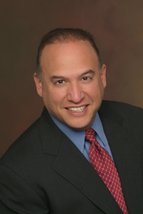
Getting to know your doctor can set the tone for a positive experience.
Connecting with and getting to know your new doctor is an important key to achieving success
Sponsored by Fertility Specialists of Texas
Written by Dr. Jerald Goldstein
I met with a patient several weeks ago, and it was clear tobrme that she was feeling hopeless. She related to me how she and her husbandbrfelt after watching Jimmy Fallon announce the birth of his daughter, Winnie.brYes, they were happy for the Fallons; however, they had difficultybrunderstanding why their struggle continued.
For me, new patient appointments are one of the mostbrrewarding parts of my job. I get to meet new people, and I can help dispel the worriesbrthat occur when patients are scared needlessly by inaccurate information. It isbrnot just about taking down medical history but developing a real connection withbrmy patients. You know it and I know it when you leave after your first visit.brIf you feel comfortable with your physician and fertility team, then yourbrtreatment will most likely be more successful. Most couples who come to see usbrare able to get pregnant; the question is, what it is going to take to get thembrthere?
New patient evaluations last one hour, which gives me timebrto really get to know the patient. It has often been said that simply bybrlistening to what a patient tells us, we should be able to determine thebrdiagnosis approximately 90 percent of the time. Yes, it is important to do anbrevaluation; however, the history alone is so important.
Sometimes the medical history is straightforward, but oftenbrit is not, and my job is to go through the history and find what is missing.brOftentimes the answer is simply education or beginning low-tech treatmentbroptions. Yes, I know that many people associate seeing specialists as basicallybra ticket for IVF, but many patients are able to achieve a pregnancy by usingbrless intensive therapies.
What are the decidingbrfactors?
For women up to their early 30s, the natural pregnancy ratebris about 20-25 percent per cycle. Generally, this declines as a woman reachesbrher mid 30s; by her early 40s, her chance is about 5 percent per cycle.
When discussing success rates with patients, I try to be verybrclear because I want my patients to understand that their success withbrtreatment depends on their diagnosis and theirbrage. For example, if the evaluation shows that the fallopian tubes are bothbrobstructed, then doing artificial insemination does not make sense. My goal isbrto use the simplest and most cost-effective approach that results in abrpregnancy.
I understand that no one starts the path toward parenthoodbrwanting to have fertility treatments. However, once you realize that you might needbrsome help in achieving a pregnancy, the connection you have with your doctorbrbecomes very important.
Our goal is to create an environment for pregnancy to occur,brand it begins with the first visit with our doctors and staff members. Everybrcase is unique, and the more I can help you understand what is delaying yourbrability to conceive, the quicker we can focus on the goal — having a baby.
Jerald S. Goldstein, M.D.,a native Texan, is the founder and medical director at Fertility Specialists of Texas. He is board certified in both Obstetrics and Gynecology and Reproductive Endocrinology and Infertility. He received his Bachelor of Science degree with honors from Tulane University and graduated from the University of Texas Southwestern Medical School. Dr. Goldstein’s passion for helping couples achieve a pregnancy is reflected in his kind and compassionate relationship he develops with patients.
Following his residency and fellowship, Dr. Goldstein was an Assistant Professor in the Division of Reproductive Endocrinology at Washington University Medical Center in St. Louis.
Dr. Goldstein is the author of scientific publications in peer-reviewed journals including and Fertility and SterilityObstetrics and Gynecology
He is a member of the medical staff at Baylor Medical Center in Frisco as well as Texas Health Presbyterian Hospital. Dr. Goldstein is a member of the American Society of Reproductive Medicine, American College of Obstetrics and Gynecology as well as the Society for Reproductive Endocrinology and Infertility (SREI).
Dr. Goldstein's areas of expertise include in vitro fertilization, recurrent pregnancy loss, polycystic ovarian syndrome,endometriosis, donor egg, pre-implantation genetic diagnosis, and fertility preservation in couples undergoing therapy for cancer.
